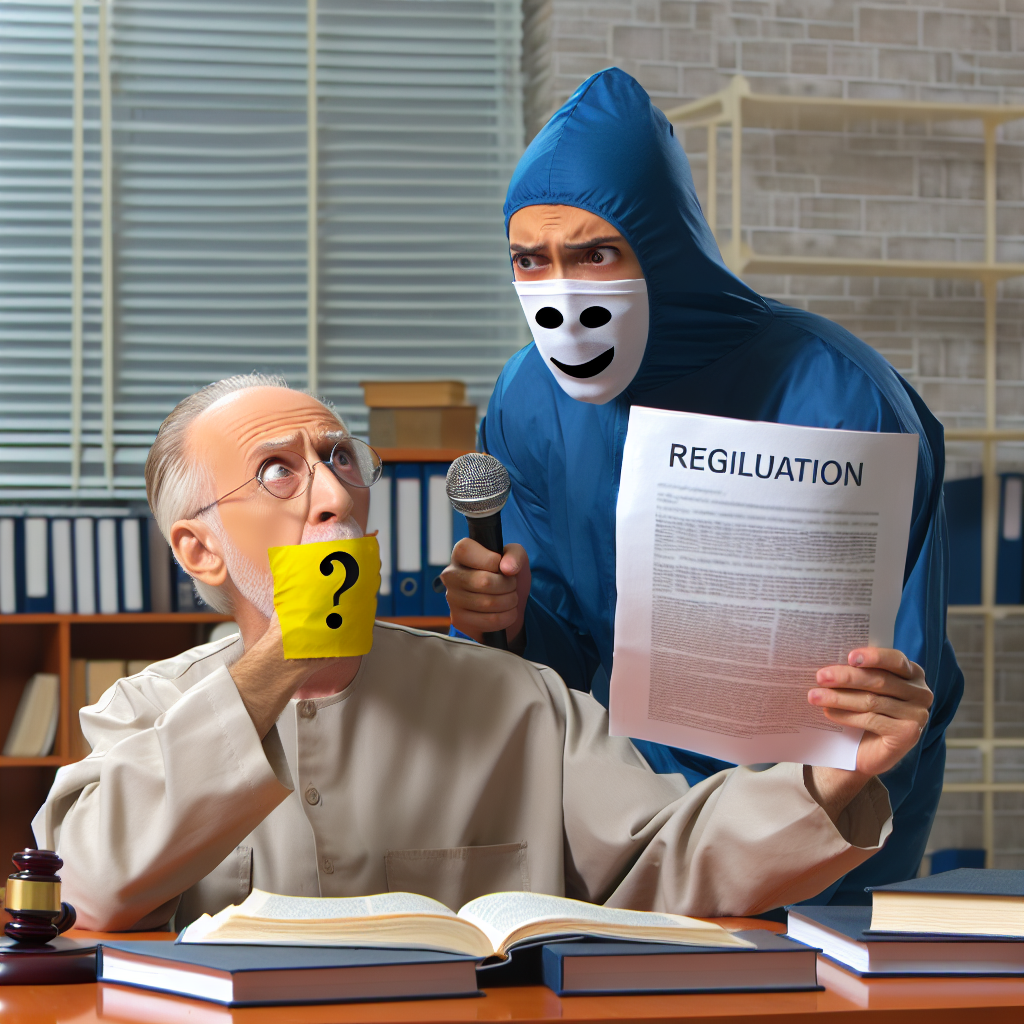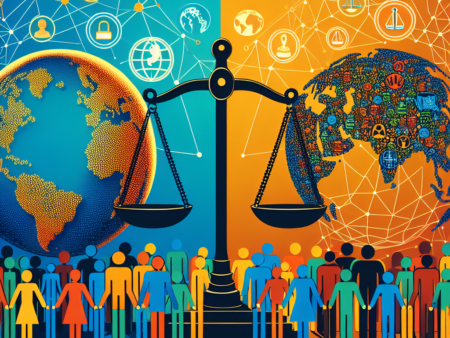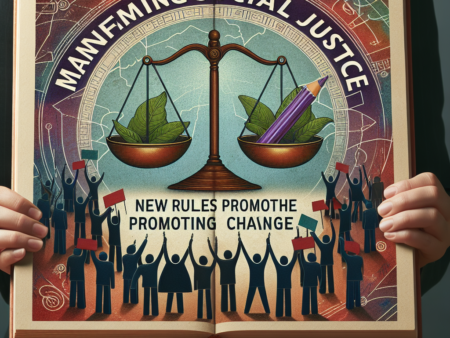Deskripsi meta: Analisis peraturan baru tentang kebebasan berpendapat di ruang publik membahas implikasi dan dampaknya terhadap kebebasan berbicara masyarakat.
Analisis Peraturan Baru tentang Kebebasan Berpendapat di Ruang Publik
-
Table of Contents
- Introduction
- The Background of Freedom of Speech in Indonesia
- The Importance of Freedom of Speech in a Democratic Society
- The New Regulations on Freedom of Speech in Public Spaces
- The Implications of the New Regulations
- The Role of Civil Society Organizations and Activists
- The Importance of Public Discourse and Dialogue
- Conclusion
Introduction

Indonesia, as a democratic country, upholds the principles of freedom of speech and expression. However, recent changes in regulations regarding freedom of expression in public spaces have sparked debates and concerns among citizens and human rights activists. This article aims to analyze the new regulations and their implications on freedom of speech in public spaces in Indonesia.
The Background of Freedom of Speech in Indonesia
Indonesia has a long history of fighting for freedom of speech and expression. The country’s constitution guarantees the right to freedom of speech and expression under Article 28E(3). This provision ensures that every citizen has the right to express their thoughts, opinions, and ideas freely.
Over the years, Indonesia has made significant progress in promoting freedom of speech. The country has witnessed the rise of independent media outlets, vibrant civil society organizations, and active social media platforms that allow individuals to express their views openly.
The Importance of Freedom of Speech in a Democratic Society
Freedom of speech is a fundamental pillar of any democratic society. It allows citizens to voice their opinions, criticize the government, and engage in public debates. This freedom is crucial for the development of a healthy and transparent democracy.
By allowing individuals to express their thoughts freely, a society can benefit from diverse perspectives, innovative ideas, and constructive criticism. Freedom of speech also plays a vital role in holding the government accountable and ensuring transparency in public affairs.
The New Regulations on Freedom of Speech in Public Spaces
In recent years, the Indonesian government has introduced new regulations aimed at regulating freedom of speech in public spaces. These regulations include restrictions on public gatherings, demonstrations, and the use of public spaces for expressing opinions.
One of the key regulations is the requirement for individuals or groups to obtain permits before organizing public gatherings or demonstrations. This regulation has raised concerns among activists who argue that it could be used as a tool to suppress dissent and limit freedom of expression.
Another regulation is the prohibition of hate speech and the spread of false information in public spaces. While these regulations aim to maintain social harmony and prevent the spread of misinformation, critics argue that they could be misused to silence dissenting voices and curtail freedom of speech.
The Implications of the New Regulations
The new regulations have raised several concerns regarding their implications on freedom of speech in public spaces. Critics argue that the requirement for permits could create bureaucratic hurdles and discourage individuals from expressing their opinions publicly.
Moreover, the prohibition of hate speech and false information is seen as subjective and open to interpretation. This raises concerns about potential abuse of power and selective enforcement, which could lead to the suppression of legitimate criticism and dissent.
The Role of Civil Society Organizations and Activists
In response to the new regulations, civil society organizations and activists have played a crucial role in advocating for the protection of freedom of speech in public spaces. They have organized protests, filed legal challenges, and raised awareness about the importance of this fundamental right.
These organizations and activists have highlighted the potential dangers of the new regulations, emphasizing the need for a balance between maintaining social order and upholding freedom of speech. They argue that instead of restricting freedom of expression, the government should focus on promoting dialogue, tolerance, and understanding.
The Importance of Public Discourse and Dialogue
Public discourse and dialogue are essential for a democratic society. Instead of imposing restrictions, the government should encourage open discussions, debates, and the exchange of ideas. This can foster a culture of tolerance, understanding, and respect for diverse opinions.
By promoting public discourse, the government can address concerns, engage with citizens, and find common ground. This approach not only upholds freedom of speech but also strengthens democracy by ensuring that decisions are made collectively and reflect the will of the people.
Conclusion
The new regulations on freedom of speech in public spaces in Indonesia have sparked debates and concerns among citizens and human rights activists. While the government aims to maintain social order and prevent the spread of hate speech and false information, it is crucial to strike a balance between these objectives and upholding freedom of speech.
Civil society organizations and activists play a vital role in advocating for the protection of freedom of speech. By promoting public discourse and dialogue, the government can address concerns, engage with citizens, and ensure that decisions reflect the will of the people.
In conclusion, freedom of speech is a fundamental right that should be protected and upheld in any democratic society. The new regulations in Indonesia should be carefully reviewed to ensure that they do not infringe upon this essential right. It is through open discussions, debates, and the exchange of ideas that a society can thrive and progress.
Pos-pos Terbaru
- Implementasi Peraturan Baru: Menjawab Tantangan Hak Asasi Manusia di Era Globalisasi
- Perlindungan Hak Masyarakat Adat dalam Kasus Ekspansi Bisnis
- Hukum Internasional dan Kriminalisasi Homoseksualitas: Isu Hak Asasi Manusia
- Perlindungan Hak Asasi di Negara-Negara Berkembang
- Masyarakat Adat dan HAM: Advokasi untuk Pengakuan Hak Tanah
Komentar Terbaru
arrowggsew.com - asianmanufacturer.com - bucklesmotors.com - calvaryintcanada.com - carakeshagrawal.com - catchabigone.com - celticaweb.com - cirugiadehernias.com - cqhzdn.com - dailfamily.com - execumeet.com - fbccma.com - filtersupplyamerica.com - goessexcounty.com - handmadebysiona.com - hotelmariest.com - hypotenuseenterprises.com - iconstantcontact.com - impinner.com - jasframing.com - joannepark.com - kandelco.com - keysoftintl.com - melanconcompany.com - mrknickknack.com - phpbbnxg.com - portallogistico.com - powerlinereading.com - programmerg.com - qualitypashmina.com - tcvselakui.com - touchkasimedia.com - tunnellracing.com - wolfriveroutfitters.com - youzhieducation.com - zeckoware.com - w-rabbit.com - forexcalendar.my.id - forexcost.my.id - forexcracked.my.id - forexcrypto.my.id - forexdana.my.id - forexdemo.my.id - forexfactory.my.id - forexhalal.my.id - foreximf.my.id - forexlive.my.id - forextradingreviews.my.id - forextrading.my.id - forextimeconverter.my.id - forexnews.my.id - belajargsaseo.my.id - adsdiaspora.com - ajreinke.com - annacbrady.com - austinmgarner.com - awinterromance.com - awppgh.com - basantpradhanmd.com - bronislawmag.com - brookehofsess.com - bswproject.com - captivedaughtersfilms.com - caraamanaborsi.com - caramenggugurkankandunganherbal.com - centralobatpembesar.com - deleuzecinema.com - dietpillspapa.com - dontgiveuponnpc.com - droscargil.com - egritud.com - forhelpyou.com - gailhfleming.com - heyimalivemag.com - hyunsunkimhahm.com - ihrm2016.com - illinoistechcon.com - jilliankaulpeterson.com - jlrppatterns.com - johnmgerber.com - klikhammerofthor.com - kyleadamblair.com - lindsaymking.com - lipimagazine.com - lisandrarcarmichael.com - mollyjuneroquet.com - obatpenggugurampuh.com - ontologyschmology.com - pargirlmothers.com - reinventingthebible.com - salvemoslacandela.com - seasabia.com - shakiba-enayati.com - slothsearch.com - teachingadcreative.com - texasnativeamericanlawsection.com - thefemalepatient.com - topprowellness.com - tpcheap.com - wethewomendesign.com







